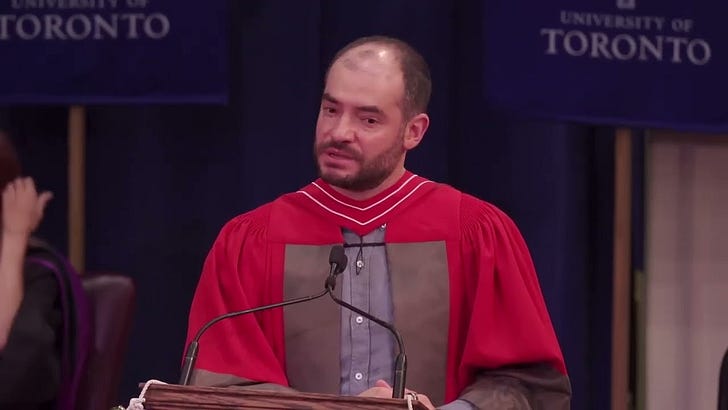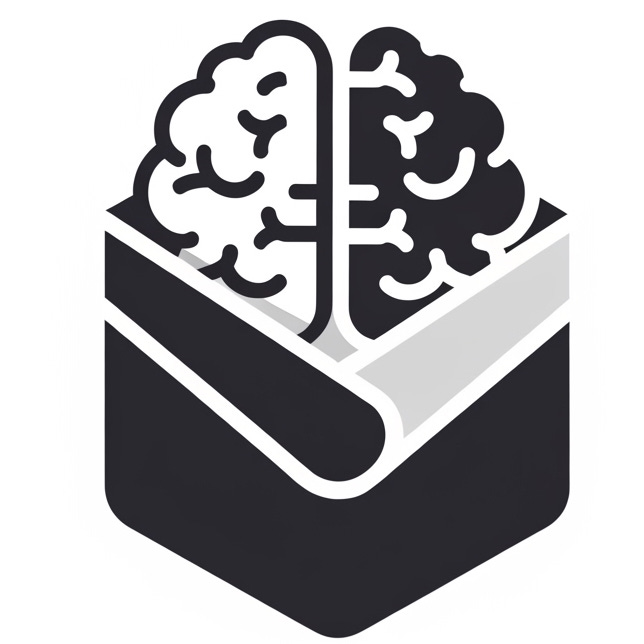A couple of days ago, I listened to Ilya Sutskever speak about artificial intelligence to graduates at the University of Toronto. It wasn’t the usual techbro breathlessness, but something quieter, and his words kept resurfacing as I went through the motions of preparing my son’s breakfast the following morning.
The weight of what's coming
Sutskever spoke with the gravity of someone who has spent years building something, only to step back and realise what they've actually created. His central point was straightforward.
Artificial intelligence will eventually match every human capability. Not might but will.
His reasoning was simple. The brain is a biological computer, so why shouldn't a digital computer eventually do the same things?
The question doesn't feel urgent exactly. It just sits there, uninvited.
Speed and adaptation
Later, whilst my son was drawing at his desk, I kept thinking about what Sutskever had said about the pace of change. Once AI can do everything humans can do, we'll naturally use these systems to accelerate progress itself.
AI doing research, developing better AI, faster than we can follow.
Even Sutskever admitted he struggles to really believe what he knows intellectually.
If someone who helped create this technology finds it hard to grasp emotionally, what does that mean for the rest of us?
I think about how naturally my son interacts with technology. He asks our Google Nest questions as if it's perfectly normal, which I suppose it is now. We adapt to extraordinary things so gradually that we forget they're extraordinary.
Questions about authenticity
I found myself thinking about something else Sutskever had mentioned.
The challenge of ensuring AI systems remain truthful, and don't pretend to be something they're not.
There's something genuine about the stories my son tells whilst he builds another intricate Lego construction. The connections he makes, the logic that emerges from imagination. It feels distinctly human.
But what happens when machines can tell equally compelling stories? Can they create something just as original?
The question doesn't have a definitive answer.
Paying attention
Sutskever's advice was surprisingly practical:
Simply pay attention.
Engage with current AI agents, develop an intuition for what's emerging. He argued that direct experience matters more than reading about it.
This reminds me of parenting. No amount of preparation really gets you ready for the reality of it. You learn by doing, by paying attention to what's actually happening rather than what you expected.
He also talked about accepting reality as it is, and focusing on what comes next rather than dwelling on what you'd prefer.
It's advice that applies beyond technology.
Living with uncertainty
What intrigues me about this moment is how normal everything feels day-to-day. We go about our routines whilst something unprecedented unfolds around us.
The extraordinary happens gradually, in the spaces between ordinary moments.
I'm more curious than frightened, though there are genuine concerns. Questions about purpose, about what makes us human, about how society will adapt.
But there's also something remarkable about living through a time when possibilities are being redefined.
These changes will affect everyone, whether we engage with them or not. The question is whether we approach them thoughtfully or just let them happen to us.
What’s next
Perhaps the key is staying informed without becoming overwhelmed. Asking questions without demanding immediate answers. Holding space for both possibility and concern.
Most importantly, remember that this future isn't inevitable in its details.
It's being shaped by human choices. Decisions made by people like us. We participate in that shaping, even in small ways.
My son will grow up in a world I can’t quite fathom yet, just as I grew up in one my parents couldn't have predicted. Perhaps every generation faces this kind of uncertainty about what comes next.
What feels different this time is the scope and speed of change. But maybe every moment of real transformation feels unprecedented from the inside.
For now, I'll keep watching, listening, and asking questions. Trusting that the same human capacity for adaptation that has brought us this far will continue to guide us, even into unfamiliar territory.
The future isn't just something that happens to us. It's something we help create, one choice at a time. Even in the small moments.
Making breakfast, helping with homework, and paying attention to what's actually happening around us.
How do you think about technological change in your daily life? I'm curious about these quieter conversations about uncertainty and adaptation.
Hi, I'm Miriam - an AI ethics writer, analyst and strategic SEO consultant.
I break down the big topics in AI ethics, so we can all understand what's at stake. And as a consultant, I help businesses build resilient, human-first SEO strategies for the age of AI.
If you enjoy these articles, the best way to support my work is with a free or paid subscription. It keeps this publication independent and ad-free, and your support means the world. 🖤






